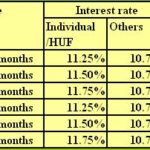Since recent FATCA act – Foreign Account Tax Compliance Act – there is some kind of confusion among NRI investors.Here we have taken a view of investments made by NRIs in mutual funds.Here are some frequently asked questions about NRI investments.
- KYC Norms for NRI : KYC norms are similar to other resident Indian investors. NRI need to provide copy of pan and overseas address. NRI can also provide local address for communication purpose.But providing foreign address is mandatory. KYC status will be reflected as Non-Resident.
- Oversea bank account: NRI can not register overseas bank account.
- Investment through Non-Resident External – NRE / NRO – Non-Resident Ordinary account: NRIs can invest in Indian rupees & not in foreign currency. NRI can invest through either NRE or NRO account/ rupee draft or bankers cheque.
If investment is made through NRO account then redemption amount will be non-repatriable while NRE accounts are rupee accounts from which funds are fully repatriable.
- Investment through rupee draft / bankers cheque: If NRI investor invests through draft / bankers cheque then FICR (Foreign Inward Remittance Certificate )certificate & letter issued by bank confirming source of fund is required.
- Joint holding : NRI can have resident or non-resident joint holder subject to KYC norms.
- Appointment of POA: NRI can appoint Power of Attorney holder. POA holder have authority to invest on behalf of investor and sign documents for different transactions like additional purchase,switch, redemption etc.While purchasing mutual fund units, the POA holder need to submit original Power of attorney or its notarized copy. POA should have been signed by both NRI investor & POA holder.
- Nomination Facility:Nomination facility is available . Also resident individual can appoint NRI as nominee.
- For US / Canada based non-residents:As on today, only selected mutual funds complying with US FATCA / taxation laws are allowing investment from US / Canada NRIs. US / Canada based NRIs can invest in schemes of DHFL -Pramerica, Sundaram , L&T and UTI mutual funds.
- FATCA compliance:NRI can declare FATCA compliance through a form specified by mutual funds.Investor need to furnish details like place of birth,Country of tax residency, Tax payer identification number .Investor provides authority to pass information to tax authorities of related countries.
- Dividend taxation:Irrespective of nature of scheme, income received through dividends is tax free in hands of investor.But for debt & liquid schemes, funds need to pay dividend distribution tax @ 28.84%.
- Long term equity capital gains taxation : Long term equity capital gain tax is nil.
- Short term equity capital gain taxation:short term capital gain tax will be applicable @15% on capital gains.Tax will be deducted at source @17.304% including cess.
- Long term capital gain taxation for debt fund:If scheme is listed at stock exchange then TDS will be applicable @ rate of 20% + surcharge + cess.If scheme is not listed then TDS will be applicable @ 10% + surcharge + cess.
- Debt fund Short Term capital gain taxation: Tax will be deducted at source @30% on capital gains + surcharge + Cess.
Though income received in India is tax free or taxable, NRI investor also need to check taxation laws of the country they are residing.





